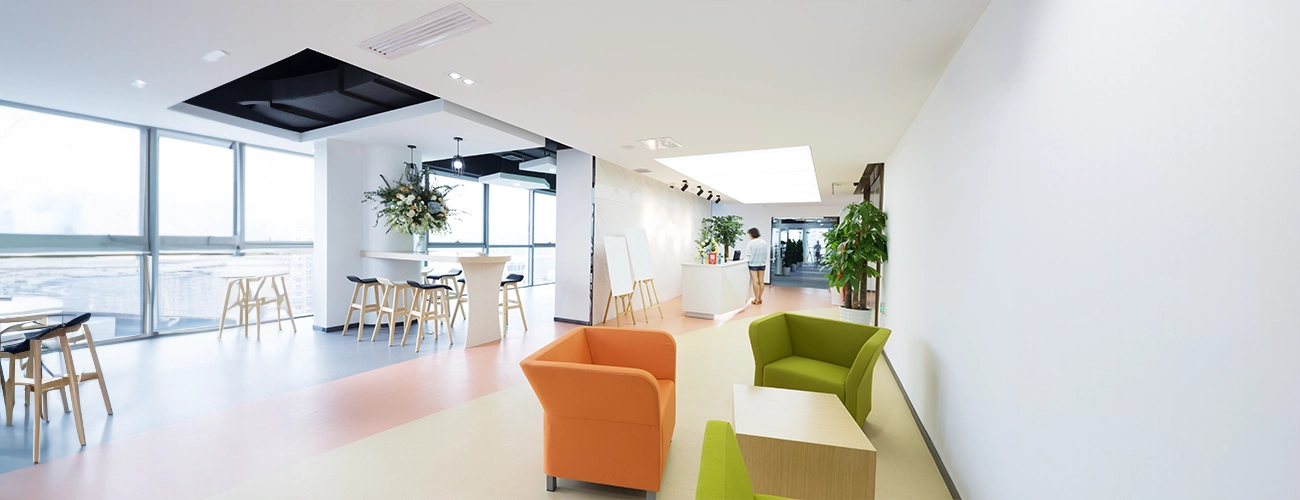
India's office space market experienced exceptional growth in 2023, which boosted market sentiments. According to an industry report, the demand for office spaces in 2023, especially in top metros, was at an all-time high. In 2024, various factors such as the dynamic nature of work, technology, and societal trends will influence the future of office spaces. The modern office design paradigm has evolved from a focus on aesthetics to a more inclusive approach that takes into account employee well-being and sustainability.
Looking ahead, the design of workspaces will continue to be crucial in shaping how we work. Let's explore some of the trends that will influence the future of offices.
Technology Advancements: Rapid advancements in technology in office spaces and commercial buildings are a growing trend. Smart buildings and office spaces that leverage technology to enhance productivity, security, and user experience are expected to become more prevalent.
Biophilic Design: Biophilic design is a modern approach to architecture and interior design that aims to blend natural elements into the built environment. This design philosophy is based on the idea that humans have an innate connection to nature, and integrating nature into the workspace can have a positive impact on human health and performance. Biophilic design seeks to enhance well-being, productivity, and creativity by incorporating elements of nature into the spaces where people live and work.
Sustainability: Office space design will increasingly prioritize environmental sustainability, integrating green building concepts, energy-efficient technologies, and eco-friendly practices to reduce environmental impact. A survey conducted by JLL revealed that sustainability is one of the top three factors that real estate occupiers consider when selecting office spaces, along with location and rental costs. To encourage developers to design buildings that have low resource consumption, generate less waste, and have a lesser environmental impact, GRIHA (Green Rating for Integrated Habitat Assessment) is a system enabling to creation of eco-friendly buildings that have minimal resource consumption, less waste, and cause less harm to the environment. GRIHA is India's green building rating system and aims to assure energy efficiency, indoor air quality, and occupant well-being by setting certain benchmarks to attain the coveted five-star green building rating.
Collaboration and Creativity: The role of the office as a hub for collaboration and creativity will be emphasized. Designing spaces that foster teamwork, innovation, and social interaction will be crucial in future office space design.
Flexibility and Adaptability: The demand for flexible office spaces and agile work environments is likely to continue. Businesses will seek spaces that can easily adapt to changing needs, allowing for scalability and efficient use of resources.
The commercial real estate and office space segment in India is expected to continue attracting interest from both domestic and foreign occupiers. Increased preference for a modern-day office space with more sustainable elements and a collaborative approach will be the key themes for office markets in 2024
